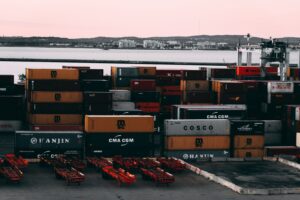- What we do
- VISIBILITYA unified, real-time view
- RiskWorld-leading in-transit solutions
- ComplianceStreamline standards and regulations
- insuranceLower premiums, better coverage
VISIBILITYA unified, real-time view- Visibility overview
- Real-Time Multimodal Transportation VisibilityA seamless connection across 170 countries
- Product Quality And IntegrityTime and temperature control for higher standards of care
- Moving & Fixed Asset ManagementIdentify your assets down to the parking space
RiskWorld-leading in-transit solutions- Risk overview
- 24/7/365 Risk MonitoringBest in class and comprehensive
- Safety and Driver BehaviourMeet compliance regulations and lower insurance premiums
- In-Transit Theft Prevention & RecoveryEnabling global responders to track, secure, and recover your cargo
- Intelligence as a ServicePrevention through information and education
ComplianceStreamline standards and regulations- Compliance overview
- Carrier PerformanceEnhanced compliance and performance for logistics service providers
- Cold Chain QualityBuilt specifically for time and temperature-sensitive cargo
- IOT Management & FulfilmentA full-service solution to design, manage, and implement your IoT strategy
insuranceLower premiums, better coverage
- Overhaul for
- Industries
Industries- Industries overview
- Healthcare & Life ScienceMonitor temperature and risk to ensure safe arrival
- Consumer Electronics & TechnologyRobust solutions for high-risk, high-value goods
- Logistics Service ProvidersWin more business with visibility and risk management in one
- ManufacturingMaintain continuity, avoid downtime, and distribute globally
- Retail, Consumer Goods & FMCGProtect your brand by protecting your cargo
- Food & BeverageIn-transit cold-chain solutions and quality control
- Why us?
- Resources
- ResourcesThe latest industry insights + intelligence
ResourcesThe latest industry insights + intelligence- BlogThought leadership and industry commentary
- WhitepapersThe latest logistics research
- ReportsUp-to-date cargo theft intelligence from around the world
- NewsRecent Overhaul news and media coverage
- About us
- About OverhaulWe’re different on purpose
About OverhaulWe’re different on purpose- Meet The TeamLearn more about our diverse leadership
- SustainabilityFind out how we’re committed to a sustainable future
- PartnershipsWhere collaboration drives innovation
- Opportunities with OverhaulMake your next move with Overhaul
- Contact us

 While this may be an initial surge in Russia-bound freight that will subside as trade with Russia and Belarus declines, dwell times for vessels unloa
While this may be an initial surge in Russia-bound freight that will subside as trade with Russia and Belarus declines, dwell times for vessels unloa 



